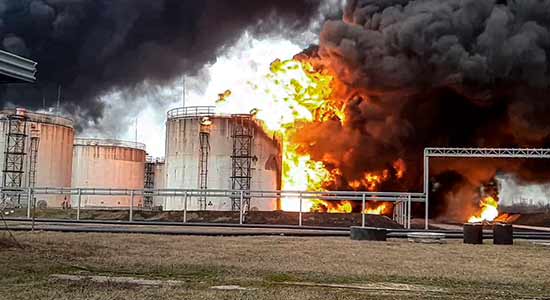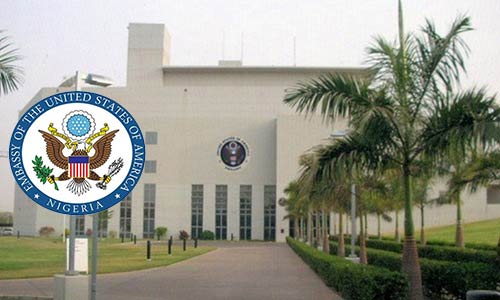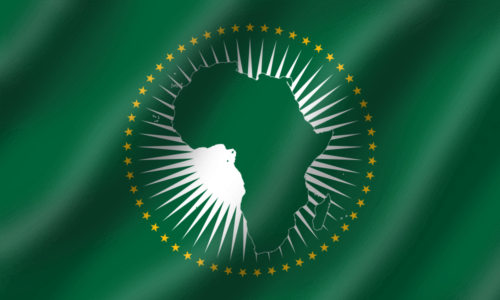INTERNATIONAL 02/04/2022
Moscow Accuses Ukraine Of Air Strikes On Oil Depot In Russian Territory

Moscow on Friday accused Kyiv of carrying out its first air strike on Russian soil, in a new blow to hopes of any deescalation in President Vladimir Putin’s war against Ukraine.
Peace talks between Ukrainian and Russian officials resumed via video, but Moscow warned that the helicopter attack on a fuel depot in the town of Belgorod would hamper negotiations.
Kyiv would neither confirm nor deny it was behind the attack, with Foreign Minister Dmytro Kuleba saying he did “not possess all the military information”.
After over a month of a military campaign that has reduced parts of Ukraine to rubble, Moscow said in peace talks earlier this week it would scale back attacks on the capital Kyiv and the city of Chernigiv.
But Ukraine’s President Volodymyr Zelensky said Russia was consolidating and preparing “powerful strikes” in the country’s east and south, joining a chorus of Western assessments that Moscow troops were regrouping.
“This is part of their tactics,” said Zelensky in a late-night address.
“We know that they are moving away from the areas where we are beating them to focus on others that are very important… where it can be difficult for us,” he said.
In particular, he warned, the situation in the country’s south and east was “very difficult”.
“In Donbas and Mariupol, in the Kharkiv direction, the Russian army is accumulating the potential for attacks, powerful attacks,” he said.
Fears grew that the theatre of war may yet grow, as Russia for the first time on Friday accused Ukraine of an air strike with helicopters hitting energy giant Rosneft’s fuel storage facility in the western town of Belgorod, around 40 kilometres (25 miles) from the border with Ukraine.
‘Errors in calculation?’
Refusing to confirm or deny the assault, the Ukrainian defence ministry said Kyiv is currently engaged in an operation to repel the enemy, and “this does not mean that Ukraine should assume responsibility for all errors in calculation, all the catastrophe and events on Russian soil.”
But the consequence of Russia’s accusation was swiftly made clear by the Kremlin.
“Of course, this is not something that can be perceived as creating comfortable conditions for the continuation of negotiations,” Kremlin spokesman Dmitry Peskov told reporters, referring to ongoing peace talks.
Russia launched its offensive on February 24 on its neighbour, expecting to quickly take Kyiv and topple Zelensky’s government.
But a ferocious Ukrainian fightback and logistics and tactical problems scuppered such plans. Meanwhile Russia has faced unprecedented Western sanctions that have led multinationals to quit the country en masse.
On the ground, Ukraine’s troops were beginning to regain control including around capital Kyiv and in the southern region of Kherson — the only significant city that Russia had managed to occupy.
‘Go back to work’
Russian troops “are continuing their partial retreat” from the north of Kyiv towards the Belarusian border, said Ukraine’s defence ministry.
Around Kyiv, civilians were trickling out of devastated areas as Russian soldiers left.
“The shops are closed, there’s no delivery of supplies. The bridge is also blown up, we can’t go for groceries through there,” said Karina Tkachenko, holding her three-year-old daughter Karolina in her arms.
“I hope all this will end soon, and I will go back to my work,” she told AFP.
In the southern city of Mariupol, civilians were still desperately waiting for help after weeks under heavy shelling with little water, food and electricity.
“We are running out of adjectives to describe the horrors that residents in Mariupol have suffered. The situation is horrendous and deteriorating,” said ICRC spokesman Ewan Watson.
‘Radiation risks’
Russian forces have encircled and relentlessly bombarded Mariupol in their bid to capture the city to join up the breakaway regions in Lugansk and Donetsk under control of pro-Moscow forces in the east with the Crimea peninsula, which it annexed in 2014.
Yulia, who arrived to safety in Zaporizhzhia on Friday in a private vehicle in a group of 13 people including two daughters, told AFP it took them two weeks and five attempts to get out.
Their previous bids were either halted by shelling or blocked by Russian troops.
Some 42 buses carrying 3,000 evacuees were on Friday seeking to get out.
“We don’t know when they will arrive, it depends on the checkpoints,” said a volunteer who is helping to coordinate arrivals in Zaporizhzhia.
Repeated operations to set up a safe corridor for civilians to escape weeks of Russian shelling in Mariupol have collapsed. Some 160,000 people are still blocked in the city, where at least 5,000 have been killed, according to Ukrianian authorities.
The international Red Cross, whose team of nine staff in three cars were on the way to the city to help coordinate a rescue operation, said it was “not yet clear that (the evacuation) will happen today.”
Meanwhile Ukrainian officials warned that Russian forces who left Chernobyl nuclear plant after weeks of occupation may have been exposed to radiation during their deployment.
“Russia behaved irresponsibly in Chernobyl on all accounts from not allowing the personnel of the station to perform their functions in a due manner to digging trenches in the contaminated areas,” said Kuleba.
“The Russian government exposed their compatriots to radiation,” he said, adding that Kyiv is currently working with the IAEA to identify any risks and to mitigate them.
Since the Russian invasion, there have been fears of increased radiological risks in Chernobyl where a reactor exploded on April 26, 1986, causing the world’s worst nuclear accident.
Reputational damage
With his economy crippled by unprecedented international sanctions, Putin has sought to leverage Russia’s status as an energy power.
Warning that EU members will need to set up ruble accounts from Friday to pay for his country’s gas, he said existing contracts would be halted if the payments were not made.
The EU has joined the United States in imposing sanctions, and European Parliament President Roberta Metsola arrived in Kyiv on Friday in a show of support.
But the bloc has not imposed an energy embargo, and economic powerhouse Germany has insisted it will pay in euros or dollars as stipulated in contracts.
The EU on Friday turned its eye to China, warning Beijing at a summit not to take Russia’s side.
“It would lead to a major reputational damage for China here in Europe,” European Commission chief Ursula von der Leyen warned.



